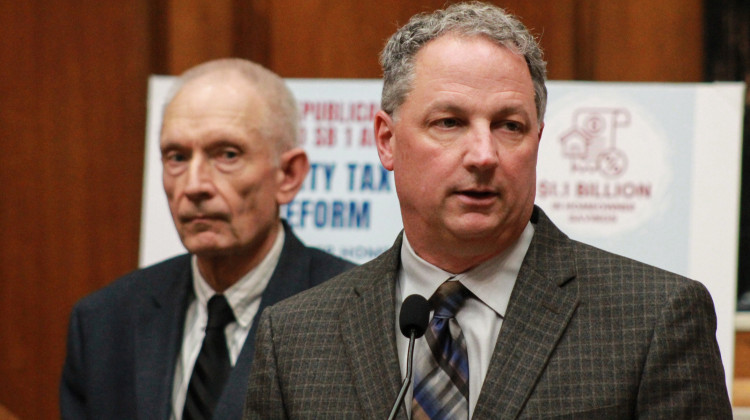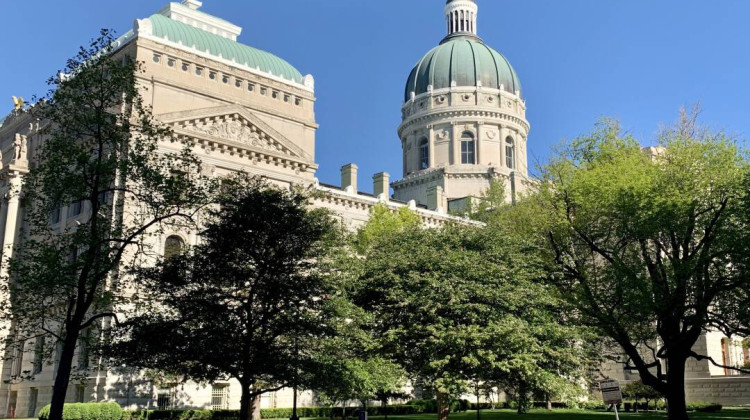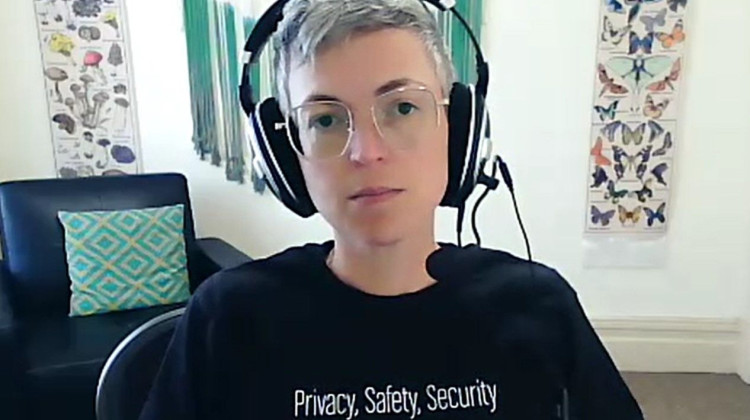
NIPSCO wants to recover the cost of cleaning up coal ash at the Michigan City Generating Station from its customers.
Chris Light/Wikimedia CommonsThe northern Indiana utility NIPSCO wants to raise rates to clean up coal ash ponds at its Michigan City coal plant. Other utilities in the state may be following suit.
Activists say NIPSCO's customers shouldn’t have to pay for what they call an “incomplete” cleanup. Though NIPSCO is removing coal ash from its ponds near the plant, it doesn’t plan to clean up coal ash used as fill on the site.
Susan Thomas is the director of legislation and policy with Just Transition NWI.
“Clean it up entirely. Otherwise Michigan City is going to be left with a toxic brownfield to contend with down the line," Thomas said.
Just Transition NWI is also concerned that contamination from the ponds is already leaking into Lake Michigan and nearby Trail Creek. NIPSCO said it believes the coal ash ponds themselves are causing the majority of the problems and the company is actively working to remove those ponds.
To pay for that effort, NIPSCO wants to increase residents' bills by about 30 cents a month.
Nick Meyer is vice president of communications for NIPSCO's parent company, NiSource. He said the company would spread out that cost over nearly a decade to make the increase more manageable for customers.
READ MORE: Why those harmed by coal pollution need to be heard as coal plants shut down
Join the conversation and sign up for the Indiana Two-Way. Text "Indiana" to 73224. Your comments and questions in response to our weekly text help us find the answers you need on statewide issues, including this series on climate change and solutions.
Jennifer Washburn is with the consumer advocacy group the Citizens Action Coalition. She said 30 cents may not sound like much, but NIPSCO could choose to charge residents for other coal ash cleanups in the future.
NIPSCO is also asking to recover the cost of the cleanups as a capital expense — which means it would be able to make a profit off of them.
“To make it easy, I'll say they have a 10 percent rate of return — it's within that range — but that means for every dollar, they get 10 cents of profit," Washburn said.
Meyer said these cleanups have infrastructure costs too — and those are usually handled as capital costs.
“Water treatments and filtration systems, there's monitoring wells and devices — so, there are infrastructure components. And then when you think about the impoundments themselves, those again are considered to be infrastructure," he said.
Washburn said the way NIPSCO’s proposed rate increase is structured, it makes residential customers pay more than their fair share — rather than an equal share from residents, commercial and industrial businesses.
Duke Energy has also asked to increase rates to pay for coal ash cleanup. Both of those increases would have to be approved by the Indiana Utility Regulatory Commission.
The IURC will hold a public field hearing about the proposed NIPSCO rate increase next Monday Aug. 1 at 6 p.m. at Michigan City's City Hall. Just Transition NWI plans to hold a rally before the field hearing at 4:30 p.m.
NIPSCO customers can also send written comments to the Office of Utility Consumer Counselor.
Contact Rebecca at rthiele@iu.edu or follow her on Twitter at @beckythiele.
 DONATE
DONATE






 Support WFYI. We can't do it without you.
Support WFYI. We can't do it without you.